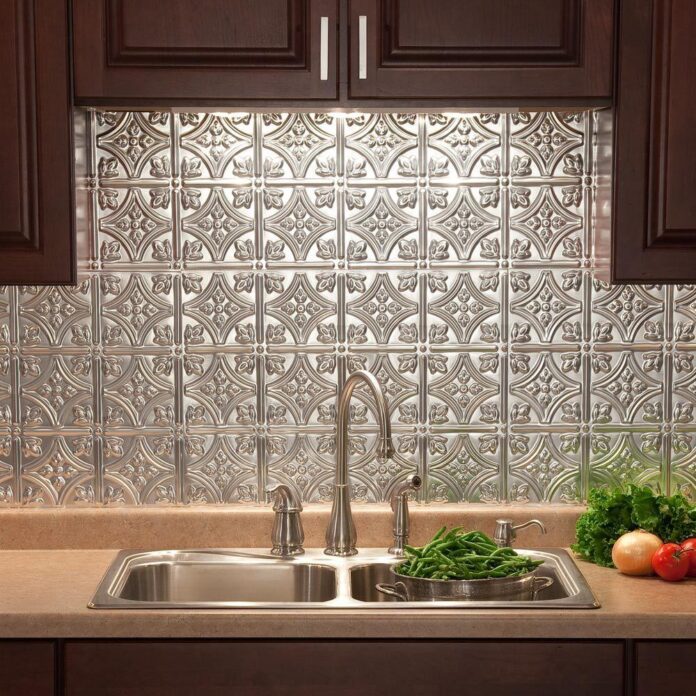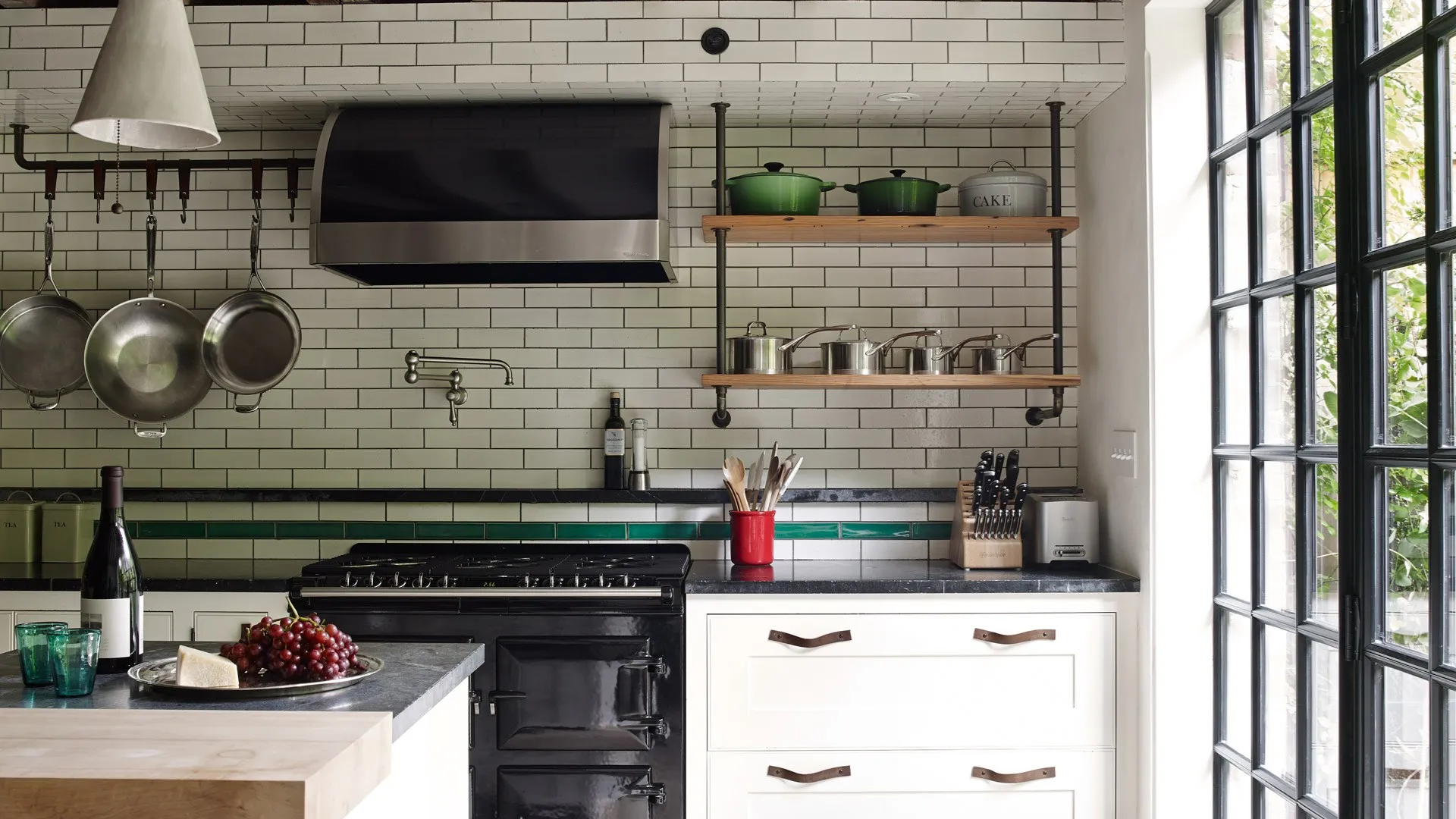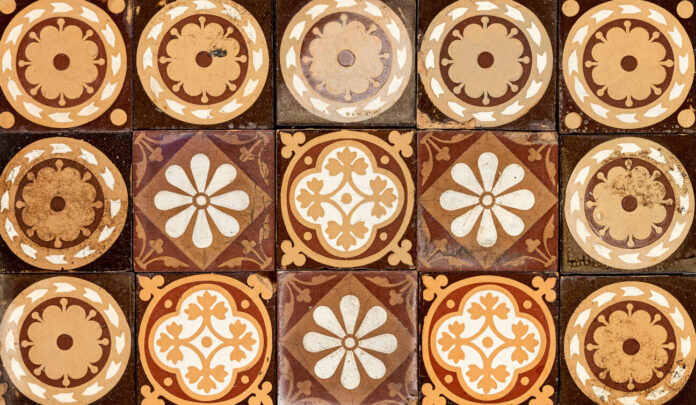
Reclaimed and recycled materials are surging in popularity within the realm of home décor, appreciated not only for their environmental benefits but also for their unique aesthetic qualities.
One particularly striking application of these materials is in kitchen renovations, specifically using reclaimed tiles for a backsplash.
This choice not only enhances the room’s visual appeal but also contributes to sustainability and waste reduction.
Unique Beauty


Reclaimed tiles offer a treasure trove of variety and rarity that new materials simply can’t match. Sourced from old buildings, discontinued product lines, and surplus inventories, each tile carries its own history and aesthetic flavor.
This assortment ensures that every installation is distinct. Some reclaimed tiles are no longer in production, adding an element of exclusivity and uniqueness to your kitchen décor. Incorporating these rare pieces can create a backsplash that not only stands out visually but also has a story to tell.
The visual appeal of reclaimed tiles is unmatched due to their unique patterns, colors, and finishes. From rustic terracotta to sleek ceramic patterns, these can blend harmoniously with a variety of interior design themes.
Environmental Impact


Using reclaimed tiles is a stellar example of practical sustainability. By repurposing materials that might otherwise end up in landfills, you reduce the environmental burden of waste and decrease the demand for new resources.
This practice not only supports ecological sustainability but also promotes a circular economy, where materials are reused and recycled continually.
Energy Conservation
The process of reclaiming and repurposing building materials typically consumes far less energy than manufacturing new ones. This energy conservation is crucial in reducing the overall carbon footprint of building materials.
By choosing reclaimed, homeowners can significantly decrease the indirect environmental impacts associated with their renovation projects. This approach not only preserves the environment but also aligns with global efforts to combat climate change.
Installation Stories


Let us see how you can install reclaimed tiles.
DIY-Friendly
Installing a reclaimed tile backsplash can be a rewarding DIY project, infused with opportunities for creativity and customization.
The process begins with selecting the right tiles, which can vary widely in color, size, and texture.
Once chosen, the layout planning stage is crucial; it involves arranging your tiles in a pattern that suits your taste while ensuring they fit the intended space.
This preparatory step can be a fun puzzle, allowing for a personalized design that reflects your unique style.
The actual installation involves applying adhesive, setting them, grouting, and then sealing, each step presenting an opportunity to learn new home improvement skills.
Challenges and Solutions


The installation of reclaimed tiles, while exciting, presents several challenges. One common issue is the irregularity in tile sizes, especially if they come from different sources or periods.
This variation can make achieving a uniform layout challenging but not impossible. To address this, you can sort the tiles by size and thickness before installation to ensure a smoother surface.
Cutting reclaimed tiles, which may be brittle or composed of harder materials, requires specific tools like a wet saw with a diamond blade, designed to handle delicate cuts without causing damage.
Ensuring that the tiles fit properly also requires meticulous spacing and alignment. Using spacers can help maintain even distances, promoting a harmonious appearance.
If the tiles are significantly uneven or damaged, using a thicker layer of grout can help compensate for minor irregularities, although it’s essential to choose a grout color that complements the tiles to enhance the overall aesthetic.
Another challenge is the adhesive selection. Reclaimed tiles might not adhere well to standard adhesives due to their unique textures and materials.
Researching and selecting the right type of adhesive that is compatible with both the tile material and the wall surface is crucial. In some cases, consulting with a professional can provide insights into the best products for your specific tiles.
Cost-Effectiveness
Using reclaimed tiles for home projects such as kitchen backsplash offers a distinctly cost-effective alternative to purchasing new, high-end tiles. Reclaimed tiles can be sourced from various places, including:
- demolition sites
- antique stores
- specialized dealers in architectural salvage
These sources often price their materials significantly lower than the market rate for new tiles, primarily because the tiles are considered second-hand, despite their quality or unique characteristics.
The affordability of reclaimed tiles is a major benefit for homeowners who desire a high-quality aesthetic without the steep cost.
This cost difference allows for room in the budget to allocate funds to other aspects of their renovation projects, whether that be additional decorative elements or essential home repairs.
The unique nature of each tile can contribute to a one-of-a-kind design that often mimics or surpasses the beauty of newer tile installations but at a more manageable price point.
Increasing Home Value


The installation of a reclaimed tile backsplash not only saves money but can also significantly enhance the market value of a home.
Unique and aesthetically pleasing features like a reclaimed tile backsplash attract potential buyers who are often willing to pay a premium for distinct design elements that stand out in the real estate market.
These buyers typically value homes that reflect personalized, creative design choices, particularly those that also consider environmental impact.
A reclaimed tile feature becomes a focal point in any room, telling a story through its unique imperfections and historical significance. This appeal is compounded by the growing trend towards environmentally conscious living.
More homebuyers are looking for sustainable properties that reflect their values, including the use of materials that are both eco-friendly and visually appealing.
The dual benefits of cost-effectiveness and potential property value increase make reclaimed tiles an appealing option for both current homeowners and potential buyers.
This unique combination of financial and aesthetic value not only enhances the immediate appeal of the home but also contributes to its long-term investment potential.
The Bottom Line
The use of reclaimed tiles offers a unique combination of beauty, environmental responsibility, and cost-effectiveness. These benefits make reclaimed materials an excellent choice for anyone considering a home improvement project.
By opting for reclaimed tiles, homeowners not only enhance the visual appeal of their space but also contribute to a more sustainable and economically savvy lifestyle.

